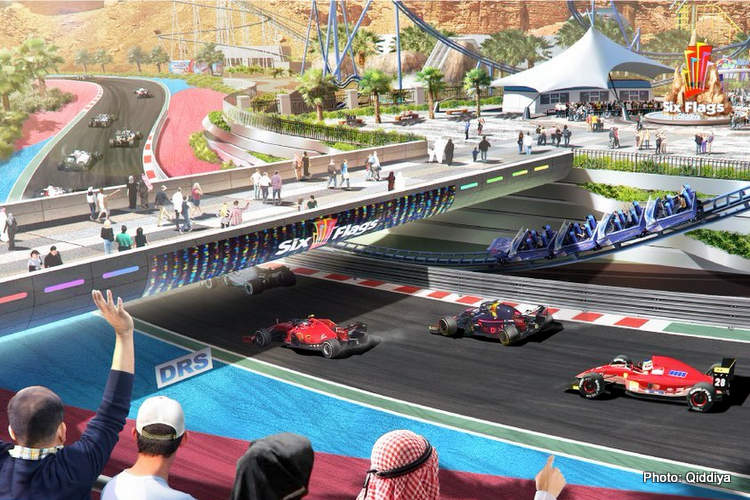The term “sportswashing” is used to refer to when countries or people of power use sporting events or franchises to launder their reputations or poor human rights records. Buying a major football club, or opening a country to Formula One (F1) races, superficially sounds like it could help rebuild economies and provide employment. However, the reality in countries that practise sportswashing is no bed of roses. Sometimes, it involves shady practices like docking the pay of employees to help fund these major sporting operations.
Saudia Arabia under scrutiny
Saudi Arabia has once again come under international scrutiny after global human rights organisation, Amnesty International warned the world of a major event on its slate: a Saudi Grand Prix 2021. This comes alongside its interests in many major names, including Uber, BP, Boeing, Citigroup, Facebook, Marriott, Disney, Cisco, Bank of America, Shell, Total, Qualcomm, IBM, and Starbucks.

The Prix will be one of 22 races on a provisional schedule that marks F1’s return to a calendar. This is despite the country’s abysmal human rights records, and one of the lowest positions (146) in the Global Gender Gap Index.
To put things into perspective, women in Saudi Arabia have only been allowed to drive since June 2018. And as you might imagine, it hasn’t been going too well.
Big-ticket purchases such as these are funded by the Public Interest Fund (PIF) of Saudi Arabia, which is the sovereign wealth fund of Saudi Arabia. It is, in fact, one of the largest sovereign wealth funds in total, and holds an exorbitant estimate of $382 billion.
Sports are good for us. Well… mostly
When a country is doused in the euphoria of the victory that a sport offers, the effect is that its human rights problems are washed over. Countries like Saudi Arabia have tried to involve themselves in major sporting events to take advantage of the emotional connection that sports foster.
“It is about integration,” explained Dr Kristian Coates Ulrichsen, fellow for the Middle East at Rice University in Houston.
“You see it with the UAE, where you have football stadiums named after Emirates and Etihad. So, even without thinking, people are saying ‘I’m going to the Emirates this week’. It’s that soft power, that normalisation of the UAE within ordinary conversations, where people don’t even think about the fact they’re spreading branding for UAE,” Dr. Ulrichsen explained.
Saudi Arabia: A history of sportswashing, funded by PIF
A race on a street circuit in Jeddah was one of the events on a draft calendar shown to teams. Sources say that Jeddah will hold the Prix in a new purpose-built track at Qiddiyah, which is scheduled for completion in 2023.
“Formula 1 should realise that a Saudi Grand Prix in 2021 would be part of ongoing efforts to sportswash the country’s abysmal human rights record,” said Felix Jakens, Amnesty International UK’s head of campaigns.
“The failed attempt to buy Newcastle United obviously hasn’t deterred the Saudi authorities, who apparently still see elite-level sport as a means of rebranding their severely tarnished reputation,” he said.
Newcastle United, you say?

Yup, in July this year, Saudi Arabia was part of a failed £300m deal to buy the football club from Mike Ashley in April. During the process, it was revealed that the Premier League was seeking clarification on the specific links between the PIF and the Saudi state. This led to PIF running out of patience, and pulling out of the deal with “regret”.
Human rights groups and activists reacted very positively to news of the takeover failing. One reaction came from the fiancee of murdered journalist Jamal Khashoggi, Hatice Cengiz, who opposed the takeover.
“Let this defeat send a strong message to the leadership in Saudi Arabia that they will not be able to use their money to cover up their human rights record or protect those responsible for Jamal’s murder,” Cengiz said.
Amnesty nudges F1 toward protective labour contracts, “at least”
Amnesty has offered its suggestions on how F1 could curb some serial problems in the country, suggesting contracts in support of human rights.
“If a Saudi Grand Prix goes ahead, at the very least F1 should insist that all contracts contain stringent labour standards across all supply chains, and that all race events are open to everyone without discrimination,” said Jakens.
Jakens also called for the support of other stakeholders of the sport, urging F1 drivers, owners, and teams to “consider speaking out about the human rights situation in the country, including by expressing solidarity with jailed human rights defenders.”
While F1 has not offered comment specifically with regards to the Saudi Arabia situation, a spokesperson emphasised the organisation’s focus on human rights issues.
“For decades F1 has worked hard to be a positive force everywhere it races, including economic, social, and cultural benefits.
“Sports like F1 are uniquely positioned to cross borders and cultures to bring countries and communities together to share the passion and excitement of incredible competition and achievement.
“We take our responsibilities very seriously and have made our position on human rights and other issues clear to all our partners and host countries who commit to respect these rights in the way their events are hosted and delivered.”














